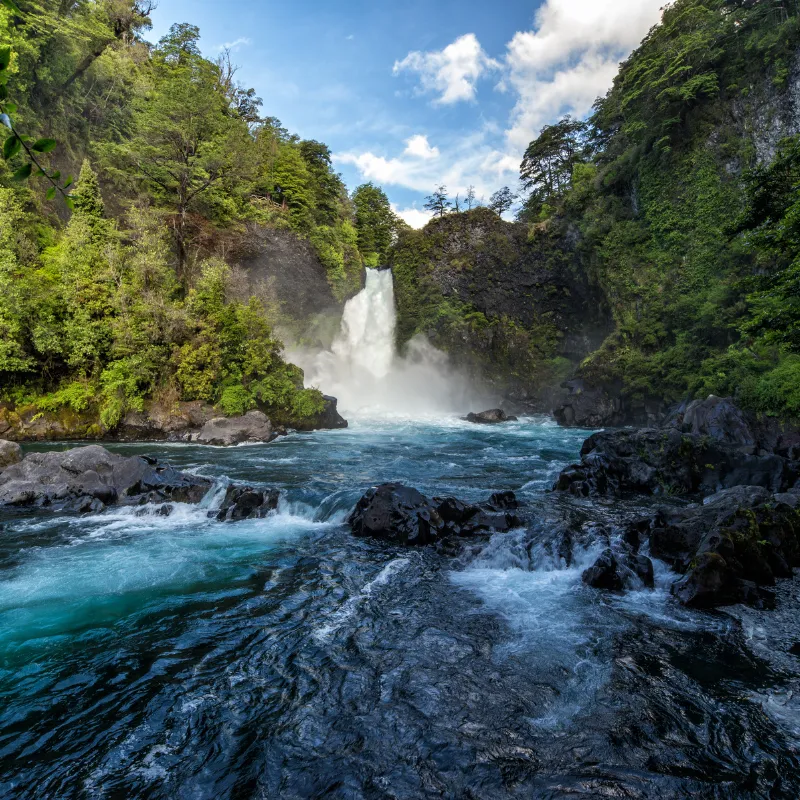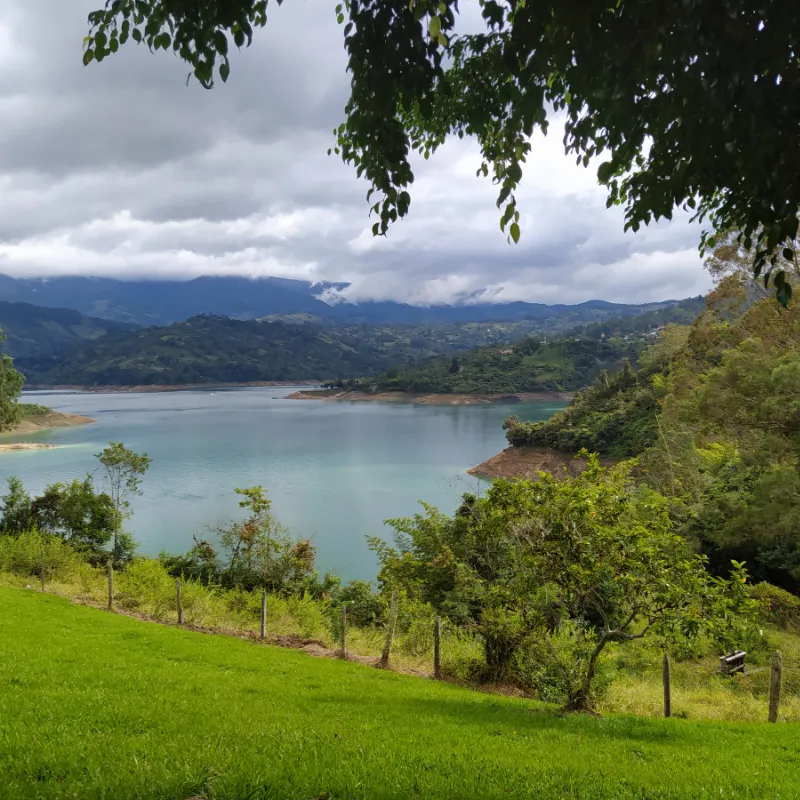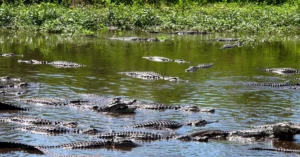Biodiversity is the variety of life on Earth, including plants, animals, and microorganisms. It forms the foundation of ecosystems that provide the essential services we depend on—air to breathe, food to eat, and clean water to drink. The importance of biodiversity for a thriving planet is undeniable.
Without it, ecosystems become fragile, risking the collapse of natural systems that sustain life.
Despite its importance, biodiversity is under immense threat. Over a million species face extinction due to habitat destruction, climate change, pollution, and overexploitation.
Protecting biodiversity is not just about saving wildlife—it’s about ensuring the survival of humanity. A thriving planet depends on a healthy balance of biodiversity.
How Biodiversity Sustains Life
Biodiversity is the backbone of healthy ecosystems. It connects every living organism, creating a balance that sustains life on Earth.
From the food we eat to the air we breathe, biodiversity ensures that natural systems function efficiently.
Without it, these systems would collapse, disrupting essential services like food production, water purification, and disaster protection. The importance of biodiversity for a thriving planet becomes evident when we examine its role in sustaining life.
Food Security And Agriculture
The importance of biodiversity for a thriving planet is perhaps most visible in its role in food production.
Pollinators like bees, butterflies, and birds are critical for nearly one-third of global crops. With them, foods like apples, almonds, and berries would become abundant and disappear entirely.
Biodiversity also supports soil health, which is essential for agriculture. Invertebrates like earthworms improve soil structure, while microorganisms break down organic matter, releasing nutrients that plants need to grow.
These nutrients are transferred to humans through food, ensuring a nutritious diet.
Marine biodiversity is equally vital. Oceans are a primary protein source for billions of people worldwide, and fisheries depend on healthy marine ecosystems to maintain fish populations.
The loss of ocean biodiversity can disrupt this balance, threatening food security for millions.
Ecosystem Services And Natural Protections
Ecosystem services are the benefits we derive from nature, many of which are directly tied to biodiversity.
Forests act as natural air purifiers, absorbing carbon dioxide and releasing oxygen. Wetlands filter water, removing pollutants and providing clean drinking water.
Nature also protects against disasters. Coral reefs and mangrove forests shield coastlines from storms and floods.
Trees and vegetation prevent soil erosion and absorb excess rainfall, reducing the risk of flooding. These natural systems are only effective when biodiversity is intact. Destroying these ecosystems weakens their ability to protect us, making disasters more frequent and severe.
For instance, mangroves can reduce wave height by up to 66%, protecting communities from storm surges. When mangroves are destroyed, nearby towns and villages face greater risks, highlighting the critical importance of biodiversity for a thriving planet.
Biodiversity And Climate Change
Biodiversity plays a crucial role in combating climate change. Forests, wetlands, and grasslands act as carbon sinks, absorbing large amounts of carbon dioxide from the atmosphere. This process slows global warming and stabilizes the climate.
Mangroves and peatlands are particularly effective at storing carbon. Studies show that protecting these biodiverse ecosystems can significantly reduce greenhouse gas emissions.
Conversely, when forests are destroyed, the carbon stored in trees is released back into the atmosphere, contributing to climate change.
Healthy ecosystems are also more resilient to climate impacts. Biodiverse systems can adapt to changing conditions, ensuring their continued function.
For example, a diverse forest is more likely to survive a drought than a monoculture plantation. Protecting biodiversity is not just about preserving species—it’s a critical strategy for addressing climate change.
The Connection Between Biodiversity And Human Health

The importance of biodiversity for a thriving planet extends to human health. Many of our medicines are derived from plants, animals, and microorganisms.
For instance, the rosy periwinkle plant has been used to develop treatments for leukemia and Hodgkin’s lymphoma. The loss of biodiversity limits the discovery of new medical treatments, potentially leaving us vulnerable to diseases.
Biodiversity also helps prevent disease outbreaks. Ecosystem destruction increases the risk of zoonotic diseases that transfer from animals to humans.
As humans encroach on wildlife habitats, they come into closer contact with animals that may carry viruses. Preserving biodiversity reduces these interactions, lowering the chances of pandemics.
Beyond physical health, biodiversity benefits mental well-being. Spending time in biodiverse environments reduces stress, improves mood, and enhances overall quality of life.
Even urban green spaces with diverse plant and animal life have been shown to lower blood pressure and decrease hospital admissions.
Cultural And Spiritual Significance Of Biodiversity
Biodiversity is deeply tied to cultural and spiritual identities. Indigenous communities, in particular, have long-standing relationships with nature.
Plants and animals often hold symbolic meanings and play crucial roles in rituals, traditions, and storytelling.
Species like the American bald eagle and the bison are culturally important national symbols. Efforts to conserve these species have been successful, demonstrating how cultural value can drive conservation.
Preserving biodiversity ensures that future generations can maintain their cultural heritage and draw inspiration from the natural world.
Economic Benefits Of Biodiversity
Biodiversity is an economic powerhouse. It supports industries like agriculture, forestry, and fisheries, which form the backbone of many economies. Pollinators alone contribute over $235 billion to agricultural production annually.
The ecotourism industry also relies on biodiversity. Tourists flock to biodiverse regions like the Amazon rainforest, African savannas, and coral reefs.
This generates income for local communities and incentivizes conservation efforts. Sustainable tourism models show that protecting biodiversity can create jobs while preserving nature.
In developing countries, biodiversity directly supports livelihoods. For example, in the Amazon basin, communities harvest Brazil nuts from wild forests.
These forests are preserved because they provide income, food, and materials. Protecting biodiversity is not only an environmental necessity but also an economic opportunity.
The Risks Of Biodiversity Loss
Losing biodiversity has far-reaching consequences. When ecosystems lose species, they become less stable and incapable of providing essential services.
Pollination decreases, water purification slows, and soil fertility declines. This can lead to food shortages, increased natural disasters, and economic instability.
For instance, coral reef destruction impacts fish populations, putting millions’ food security at risk.
Similarly, deforestation contributes to flooding and soil erosion, devastating communities. The importance of biodiversity for a thriving planet becomes painfully clear when its loss creates cascading problems.
What Can We Do To Protect Biodiversity?

- Support Conservation Initiatives: Donate to or volunteer with organizations that protect ecosystems and endangered species.
- Adopt Sustainable Practices: Choose eco-friendly products, reduce waste, and support businesses prioritizing biodiversity.
- Educate Others: Spread awareness about the importance of biodiversity for a thriving planet. Encourage community action to protect local ecosystems.
- Participate in Ecotourism: Travel responsibly by choosing destinations that invest in conservation and minimize environmental impact.
Conclusion
The importance of biodiversity for a thriving planet cannot be overstated. It supports ecosystems, protects against disasters, combats climate change, and ensures human health and well-being.
Yet, biodiversity is under threat from human activities and climate change. Protecting it is essential not just for wildlife but for humanity’s survival.
Every action counts. By supporting conservation efforts, adopting sustainable practices, and spreading awareness, we can safeguard biodiversity and ensure a thriving future for all.
“Every choice matters. Explore our sustainable initiatives and products to help protect our planet’s biodiversity.”










